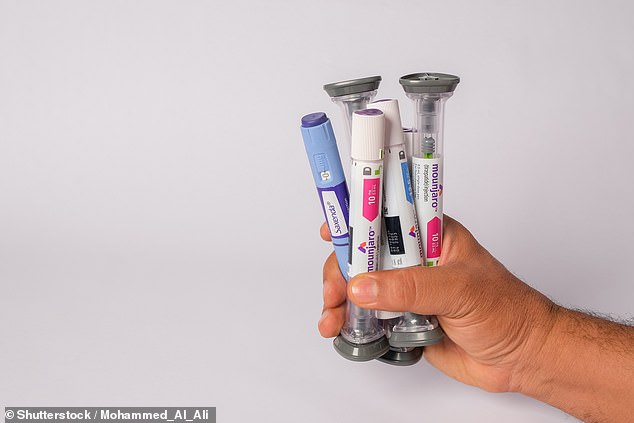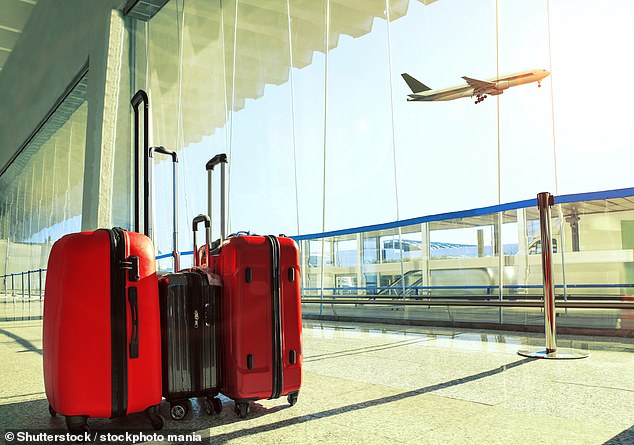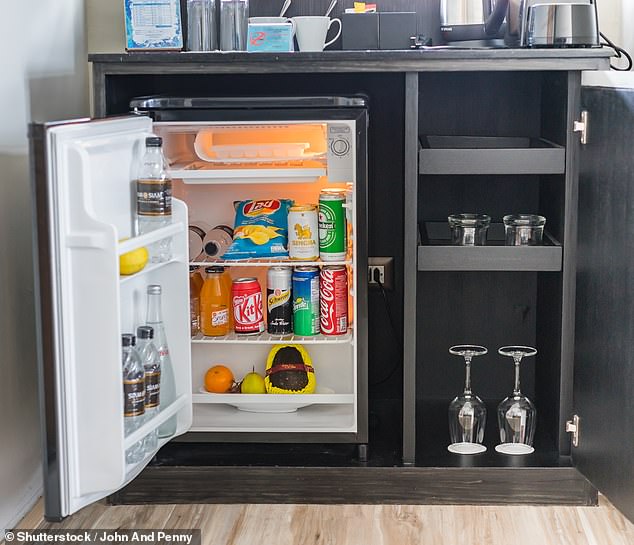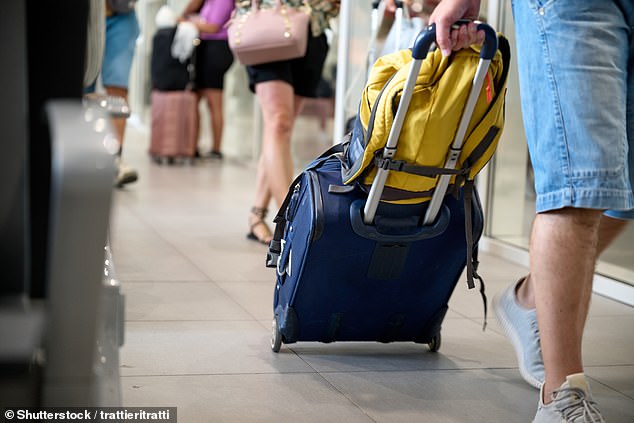With millions of Brits on weight-loss injections, those taking them have been urged to consider how they will travel with the medication this summer.
A trip to a tropical island or a European city break, whatever the destination, there’s often lots to plan for.
Pharmacist Jason Murphy has warned travellers on weight-loss jabs against storing them in the hotel fridge.
He explained how such appliance is not ‘medically safe’.
The expert advised: ‘If you’re staying in a hotel, the mini bars in rooms are often more mildly cool than medically safe.
‘And you don’t want your jab snuggling up next to someone else’s sparkling rosé. Instead, contact the hotel in advance and ask to store your medication in a staff fridge.’
Murphy recommends travellers not to ‘just toss it in your suitcase and hope for the best’.
Instead, he encourages people to think about intricacies such as the temperature it needs to be kept at and customs rules.

With millions of Brits on weight-loss injections, those taking them have been urged to consider how they will travel with the medication this summer

A trip to a tropical island or a European city break, whatever the destination, there’s often lots to plan for

Pharmacist Jason Murphy has warned travellers on weight-loss jabs against storing them in the hotel fridge
Murphy said: ‘Travelling with weight-loss medication isn’t out of the question, but it does require some forward planning.
‘You can’t just toss it in your suitcase and hope for the best. Between time zone changes, storage issues, and customs restrictions, it’s more of a ‘carry-on mission’ than most people realise.’
He explained how weight-loss injections need to be kept in a refrigerator, but that some can be stored at room temperature for a limited time.
‘These medications are designed to be kept refrigerated between 2°C and 8°C before use, but both Wegovy and Mounjaro can be stored at room temperature – below 30°C – for a limited period,’ Murphy said.
‘That gives patients more flexibility when travelling, but it’s still important to keep pens out of direct sunlight and away from excessive heat.
‘I always advise using a medical-grade travel cool bag with ice packs, especially if you’re flying to a hot destination.’
The pharmacist also advised against packing medication in hold luggage in case it was lost, as well as the added complication of the lack of temperature control.
‘Never pack injections in checked baggage.

Murphy recommends travellers not to ‘just toss it in your suitcase and hope for the best’
‘Luggage holds aren’t temperature-controlled, and there’s a risk of delays or loss,’ he explained.
Murphy continued: ‘Carry your medication in your hand luggage, in its original packaging, along with a copy of your prescription or a signed letter from your prescriber or pharmacist – something we provide routinely for patients.’
Travellers carrying medication also need to be aware of customs rules and what is allowed to enter certain destinations.
The pharmacist said: ‘Some countries (such as, Japan, UAE, and Singapore) are strict about what medication crosses their border.
‘In some cases, your jab may be considered a controlled substance, so you should always check embassy rules before you fly to save you a heap of holiday hassle.’
He also explained how people may experience ‘jet-lagged jabs’ when the local time varies with the medication schedule the traveller may usually follow at home.
Murphy said: ‘If you’re hopping multiple time zones, your injection routine may need a refresh.

The pharmacist also advised against packing medication in hold luggage in case it was lost, as well as the added complication of the lack of temperature control
‘Weight-loss injections are typically once weekly, but timing still matters.’
He advised using techniques such as setting an alarm in line to ensure the medication is taken in line with the typical routine.
The pharmacist added: ‘I’d always suggest setting an alarm for your injection based on your original UK schedule, then gradually shift it to local time over a few days.
‘You’ll feel more in sync and avoid what we call “jet-lagged jabs”.’












